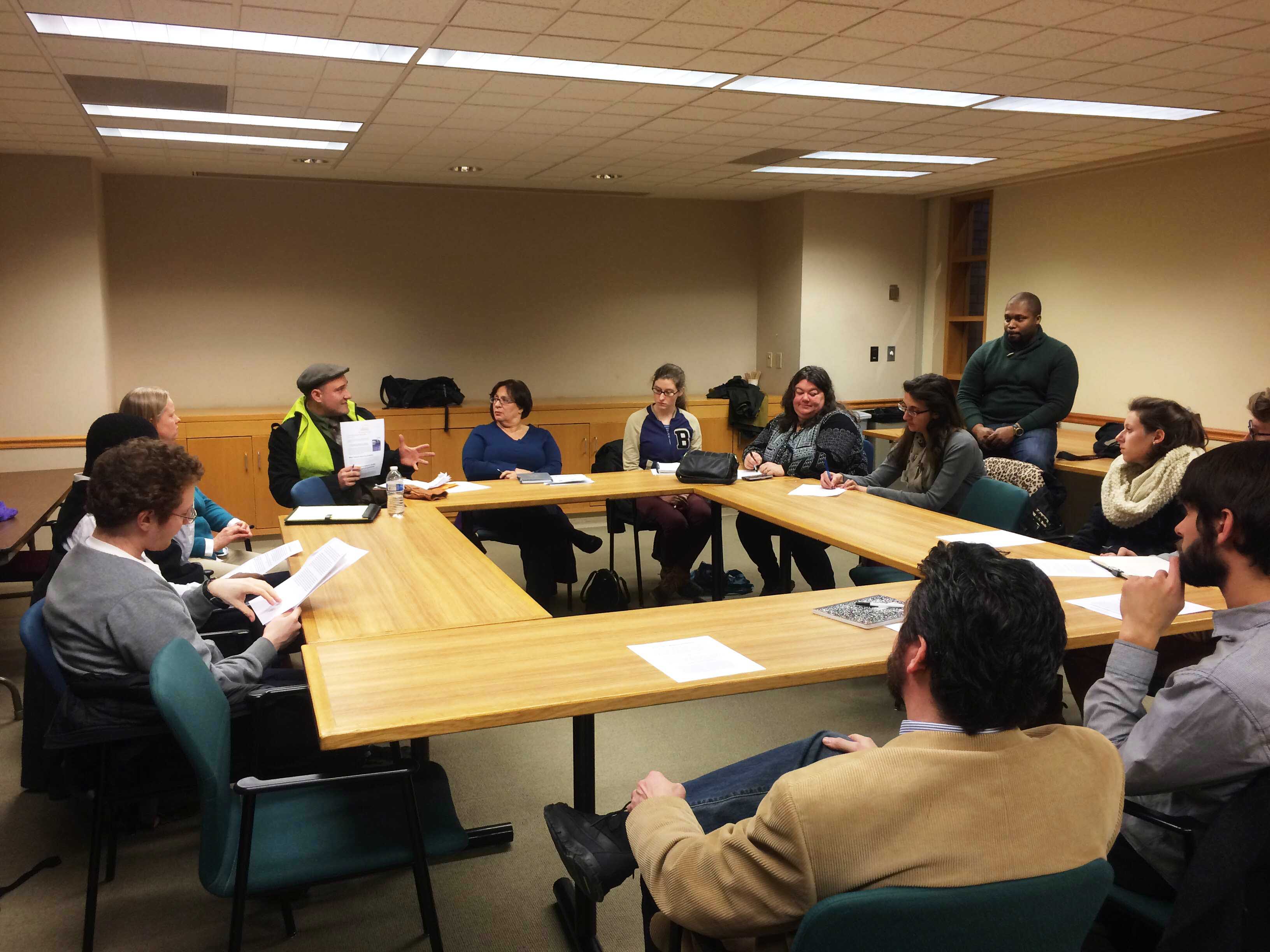
A group of community activists and New Haven residents gathered in City Hall Tuesday night to set an agenda for civic-advocacy projects throughout 2016.
The meeting of the New Haven Votes Coalition, a loose coalition of civic advocates, ended with members deciding to work on issues ranging from an expansion of the New Haven Democracy Fund to efforts to increase young people’s participation in public hearings. Focused on the concept of “civic health” — a catch-all term for levels of civic engagement in an area — the meeting also served an informational purpose. Many of the roughly 25 attendees, all New Haven residents, came out of curiosity about the group and interest in the possibilities for civic advocacy in the city.
“[The group] has been around for a while … it has become about individuals,” said Rachel Heerema, the chair of the meeting and a longtime member of the New Haven activist community. “That’s really what we’re trying to do tonight and this year — to get more individual action-oriented people to step up, and as a group we can identify the things we think are most important to civic engagement in New Haven.”
The meeting began with a brief discussion from Aaron Goode ’04, a Wooster Square resident and member of the neighborhood’s community management team. Citing a Jan. 1 DataHaven report about civic health, Goode said metrics of New Haven’s civic health run below both the national and state averages. DataHaven measures civic health by comparing a wide variety of data categories, including voter turnout, participation in government and rates of charitable giving, to the national averages for these measures.
According to the report, neighborhoods with poverty rates above 40 percent — located in cities like New Haven, Bridgeport and Waterbury — generally have considerably lower levels of civic health than those in suburban neighborhoods.
Connecting city residents with local government was a theme among the meeting’s attendees. Some said the group should advocate for liaisons between the Office of the Mayor and the city’s community management teams.
“There’s a wonderful opportunity for someone from the mayor’s office, who I think should be high up, around chief-of-staff level, to liaison with the management teams and neighborhood associations to get feelers on what’s going on and also to get feelers for ‘How are we doing? How responsive is City Hall being?’” said Lee Cruz, a Fair Haven resident and community outreach director for The Community Foundation of Greater New Haven.
Fish Stark ’17, a staff columnist for the News and former Democratic candidate for Ward 1 alder, said Cruz’s idea may have some traction, noting that the mayor had interviewed a candidate for a liaison position between the city administration and the community management teams, though no hire was ever made.
Jared Milfred ’16, the chair of the New Haven Democracy Fund, put another proposal on the table: the New Haven Votes Coalition should advocate for extending the fund, which provides public financing for city elections. At the moment, the fund only covers the mayoral race, but progressives in the city have suggested that it be expanded.
“One thing I’ve been interested in doing … is pushing an expansion of [the public-financing fund] to cover other races in New Haven, especially for the city clerk race and the two new Board of Ed seats,” he said. “I would also love to see public financing for the aldermanic races, but that’s a higher bar to reach.”
Milfred’s proposal was met with enthusiasm in the room and pulled the most votes in an unofficial vote conducted at the end of the meeting.
Another popular proposal was for efforts to involve the city’s young people more heavily in the civic process. While discussing the DataHaven report, Goode noted that age is a strong predictor for level of civic engagement — young people are less likely to be involved in their community, he said.
Lou Mangini, a senior staffer for Rep. Rosa DeLauro, said young people’s lack of engagement might be a result of millennials’ heavy use of social media, which city government seldom uses to promote public hearings.
“One of the things that stands out to me is that [public hearings] is kind of an old-school way of doing things,” he said. “I think what the city did last year, in terms of making the Board of Alders more accessible through social media, can help with that.”
Heerema suggested that social-media posts about public hearings might help engage young people in their communities. Attendees agreed, and a large portion of the meeting’s attendees said they would be willing to work on the issue throughout the year.
Heerema said the next meeting of the New Haven Votes Coalition will likely occur sometime in February. The exact date has yet to be determined.







